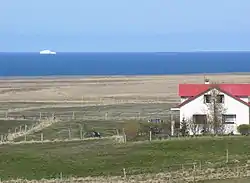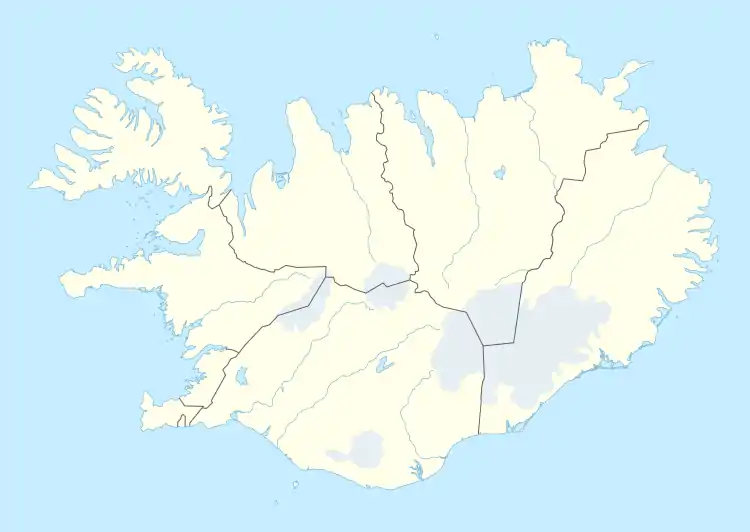Þingeyrar
Þingeyrar (Thingøre in some older texts[1]) is a farm in Iceland's Northwestern Region. It lies adjacent to the sandy coastal plain of Þingeyrasandur (or Thingøresand[1]), between the Skagi and Vatnsnes peninsulas and just northeast of lake Hóp. Þingeyrar was formerly the location of the famous convent Þingeyraklaustur (1133–1551). It is also the site of Iceland's first stone church, Þingeyrakirkja.
Þingeyrar | |
|---|---|
 View from Route 1 towards Þingeyrasandur | |
 | |
| Coordinates: 65.538063°N 20.616341°W | |
| Country | Iceland |
| Region | Norðurland vestra |
| Time zone | UTC+0 (WET) |
| • Summer (DST) | UTC+0 (Not observed) |
Icelandic scholar and politician Björn M. Ólsen (1850–1919) was born in Þingeyrar. Bjarni Halldórsson (c. 1703–1773), an Icelandic legal figure and theologian, spent most of his life on the farm.
One of the earliest recorded giant squid (Architeuthis dux) specimens was found washed ashore on Þingeyrasandur in 1639.[1][2]
References
- Volsøe, A., J. Knudsen & W. Rees (1962). The cephalopod papers of Japetus Steenstrup; a translation into English. Danish Science Press, Copenhagen. 330 pp.
- Sweeney, M.J. & C.F.E. Roper (2001). Records of Architeuthis Specimens from Published Reports. National Museum of Natural History, Smithsonian Institution. 132 pp.
This article is issued from Wikipedia. The text is licensed under Creative Commons - Attribution - Sharealike. Additional terms may apply for the media files.